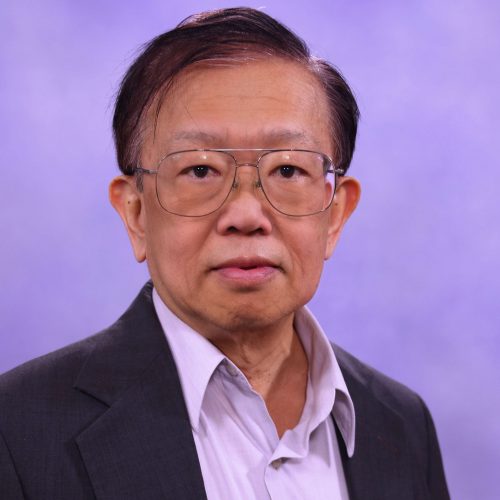Dr. Tze-Chiang Chen, Vice President at IBM and former Yale graduate. Image courtesy of Chen.
From his humble upbringings in Taiwan to his current position as Vice President of Science and Technology in the Research Division at IBM, Tze-Chiang Chen (PhD ’85) has established himself as one of the most influential researchers in electrical engineering. Born in 1951 to two teachers, Chen has maintained his scientific curiosity since childhood. “I always wanted to make something work by using mechanical, electrical, or optical components,” Chen said. “That is what inspired me to study science and technology.”
He used his childhood interests in science to pursue both a bachelor’s (’74) and master’s degree (’76) in physics at the National Cheng-Kung University in Taiwan, and paid special attention to particle physics for his MS degree. After serving in the army for two years, Chen then received a scholarship from Yale to study physics. “Not only did Yale have a very strong particle physics team, but it also had a long history with China,” Chen said. “It was a dream to come to Yale.” Chen arrived in 1978, receiving a master’s degree a year later in Engineering and Applied Science and pursuing the field until he graduated with a PhD in 1985.
Chen has worked on many impressive projects over the years. While at Yale, around 1980, Chen was offered an opportunity to work at PerkinElmer, a company commissioned by NASA to help develop the Hubble Space Telescope. Consequently, Chen drove between New Haven and Wilton, Connecticut for nine months as he balanced his studies and research work, ultimately developing a process that allowed for the mirror coatings used on the Hubble project. Thanks in part to his effective contributions, the Hubble Space Telescope launched in 1990 and is still in operation today. For Chen, this first work project still occupies a special place among all his achievements. “I solved a problem and designed all the thin-film coating parameters… It is perhaps the project I am most proud of today,” he said.
Chen continued to solve problems and design parameters when he joined the IBM team in late 1984 as a research staff member. “IBM was known to be an innovation company, and it provided a great opportunity for pioneering semiconductor research,” he said. In fact, Chen’s primary focus was on semiconductors, materials that partially conduct current and are essential for many electrical devices. His groundbreaking work during the eighties on double-poly bipolar technology production laid the foundation for semiconductor devices being implemented in IBM mainframe computers used worldwide for scientific, banking, and other commercial applications. Throughout the nineties, Chen advanced dynamic random-access memory (DRAM) density, allowing semiconductors to store more data efficiently. And at the turn of the twenty-firstcentury, Chen led a team of researchers in innovating a dielectric material for complementary metal–oxide–semiconductor (CMOS) chips, which store small amounts of memory on computers. This work resulted in a global push for silicon microelectronic use at many semiconductor companies. Since joining IBM thirty-five years ago, Chen remains an indispensable part of the company, overseeing the science and technology strategy for five laboratories across the world and continuing to monitor multinational work on other engineering projects.
Chen has accumulated many accolades throughout the years, receiving IBM’s highest honor when he was appointed to be a fellow for the company in 1999. He later became a fellow for the American Physical Society and the IEEE. In 2011, Chen received the Institute of Electrical and Electronics Engineers (IEEE) Ernest Weber award for his high managerial achievement.
Underlying Chen’s ambitions to come to Yale was an admiration for Yung Wing, a Yale graduate of 1854 who was the first Chinese student to receive a diploma from an American university. Given his illustrious career, it comes as no surprise that Chen was named Asian American Engineer of the Year in 2005.
“I want to encourage Yale undergraduate students to engage more in science and technology, given Yale’s enormous amount of resources,” Chen said, when asked to offer some advice to current Yale students. He also advised students to persist in the face of science’s many challenges. “[View hurdles] as an opportunity rather than a barrier… Through passion and perseverance, you can achieve something that makes you happy,” he said.
Once a recruiter for IBM, Chen now returns occasionally to Yale’s campus—when he’s here, he can typically be found at the Becton Center. If you’re lucky, perhaps one day you’ll meet him!

